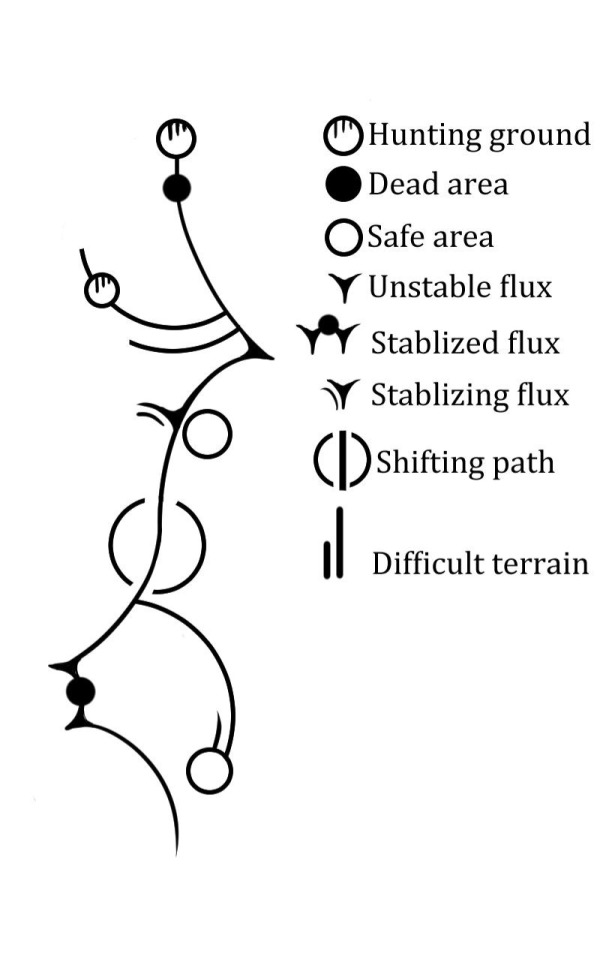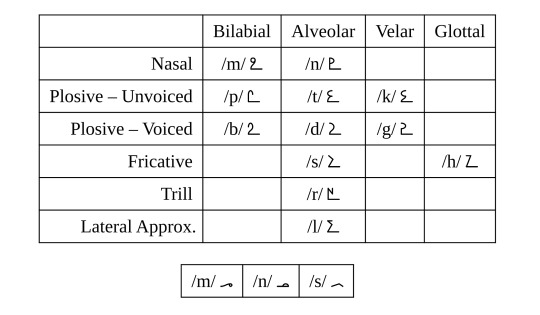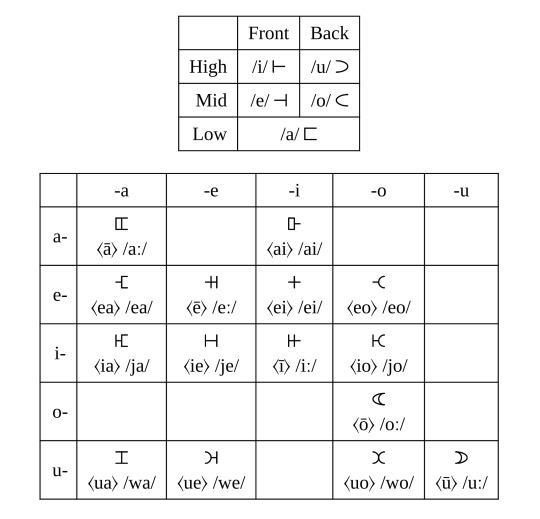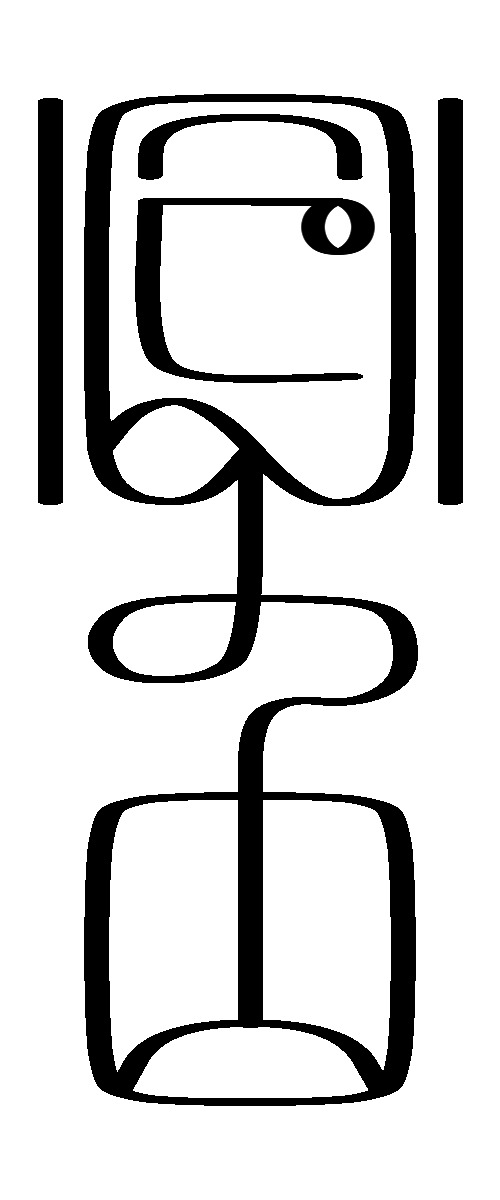#artlangs
Explore tagged Tumblr posts
Text
Hey conlanging folks! The 11th Language Creation Conference list of presentations and registration are now up! April 11–13, U. Maryland (College Park).
LCC11 will have over 26 hours of content (over twice as much as our last in-person conference); two invited speakers (Deaf linguist Dr. Erin Moriarty Harrelson and blind linguist Dr. Sheri Wells-Jensen); ASL and BSL interpretation; two tracks; multiple specialty sessions, including sign languages, loglangs, and writing systems; both open and private meetups (Christian, pro conlanger, ASL signer, autistic, disabled, plural, queer, and trans & non-binary); and a special conlang-centric performance from the Riddlesbrood Touring Theater Company.
Please register by March 4th to have a say in scheduling and time allocations (it's in the registration form).
Register by March 11th to get early registration discount, and to order an LCC11 shirt (and to contribute your conlang to its design).
Regular in person registration is $95, online $30 — with discounts for early registration and LCS members, and as-able rates for self-declared financial need. Shirts are $20 plus shipping (if any), only available if ordered by March 11th.
We look forward to seeing you all there! Please, I would ask anyone who sees this to spread the announcement and news far and wide. It would really help us get the word out about our event! This year’s conference is *by far* the largest and most ambitious LCC yet.
Fiat lingua,
Margaret, LCS President
on behalf of the LCC11 organisers
#conlang#language#LCC#LCS#language creation society#language creation conference#conlangers#conference#conlangs#worldbuilding#constructed language#linguistics#conlanging#LCC11#conlang event#conlanger#conlanging event#conlang conference#conlanging conférence#UMD#university of Maryland#DC area#Art#loglangs#artlangs#invented languages#artificial languages#fictional languages#englangs#romlangs
14 notes
·
View notes
Text
Cryptonian Conlangs: Help wanted.
I need to make a few languages, they aren't supposed to be natural, for a confederation of supernatural hackers, one faction of which can upload their own bodies as well as those they take with them into a digital world, Tron style. I want these languages to feel like programming languages and I have a few ideas on how to achieve that:
Labeling of parts of speech to clear up ambiguity.
Variable assignment as anaphora.
vocal bracketing to set apart different parts of a sentence and enclose quotes.
Every sentence starting with a line identifier that can be used as a sort of anaphora when referencing them shorthanded.
What else could I do to achieve this effect? Also, I might also look to esoteric programming languages for inspiration as well.
#mvtjournalist speaks#mvtjournalist asks#path to nowhere#path to nowhere au#path to nowhere alternate universe#ptn au#ptn alternat universe#conlanging#language construction#language creation#glossopoeia#conlangs#conlang#constructed languages#artistic languages#artlangs#personal languages#personal language#fanlangs#fanlang#fandom languages#fandom language#fan fiction#fanfiction#worldbuilding#world building#fictional culture#conculture#headworld#paracosm
5 notes
·
View notes
Text

Ni guā itișa nia hișati
I hold you in my eyes.
#conlang#constructed language#translation#conscript#constructed script#artlang#conlanging#I am still fiddling#maybe a vowel harmony system?
54 notes
·
View notes
Text


A map of extra-dimensional spaces. While they are constantly changing spaces, a few aspects will remain the same for at least a few years.
#conlang#constructed language#artlang#conlanging#conscript#constructed script#neography#worldbuilding
66 notes
·
View notes
Text

#lexember#lexember 2024#conlang#constructed language#artlang#conworld#worldbuilding#fantasy worldbuilding#Dhàzan'a#Kvember
35 notes
·
View notes
Text

Directions to valrāyanasta
I got a new calligraphy pen so I thought I'd write smth cool. This also features a stamp I carved a few weeks ago.
28 notes
·
View notes
Text

It took a little longer than expected, but we got there! Lets talk about syllables, sounds, and the writing system.
The writing system is a syllabic alphabet, i.e. it has forms for individual letters corresponding to individual sounds, but they are arranged into blocks each corresponding to a single syllable. Let's take a look at an example, Kuembros.

If a syllable starts with a consonant, it goes on the left. The only consonant clusters in this language are formed with a plosive followed by an r, which is marked in the top left if present. The vowel(s) go in the top right. If there is a consonant at the end, it is written at the bottom connected to the initial consonant. Otherwise, a simple horizontal line takes its place.
Here are the consonants with their corresponding glyphs. Only m, n, and s may be at the end of a syllable. Their ending forms are shown underneath the table.

The first table below shows the plain vowels. This is the 5-vowel system. The second table shows the possible vowel combinations along with their typical realizations. Some of these are long vowels which are held for a greater duration (e.g. ā /aː/), some are diphthongs which glide from one vowel to another (e.g. /ai/ as in eye), and some starting with an i or u may be realized as a semivowel (y in you, and w in we respectively). Note that the IPA symbol for the English consonant y is /j/.

So there we have it. If you want to puzzle out some examples of the script, the banner at the top contains some randomly generated syllables of various forms.
Next up: People, Places and Things
#conlang#constructed language#artlang#neography#constructed script#orthography#conworld#worldbuilding#fantasy worldbuilding#Kvembrian#Kvember
19 notes
·
View notes
Text
I'm remaking my ant language, so far so good.
It's a graphic language only (you can't hear pheromones) and I've designed the characters to resemble stink lines, which works well with them writing on leaves. Currently have a vocabulary of 147 words with pictographs, but I'm working up to a total of 286, maybe more!! It's so fun! I'm going to need to move online soon, it's hard to keep track of everything on paper
#conlang#constructed language#ants#artlang#im so glad i don't have to choose a phonology jakdjsodhzjdkajz
37 notes
·
View notes
Text
Lexember Day 12

Nd() ku-tsn̄ (pp)
/ˌǹ̩d ˌkù ˈt͡sń̩/
Resultative phrase
to hatch, to be born
Infinitive resultative procedural prefix nd- + ku "out of" + tsn̄ "seraph egg" (lit. "to become/emerge out of an egg").
Cuc ednr ğodzafl ku-tsn̄ tn-łxāl!
"I didn't hatch yesterday, you know!"
Seraphim are born from eggs (usually in clutches of 5-12), so this was a straightforward enough phrase to cook up. The funny thing about it too is, seraphim are also the kinda of creatures to die a few hours after procreating, so no seraphim has ever actually even met their parents. At least, not alive. And this of course fueled a lot of mythology and folklore. In some cultures, the souls of the parents will flow into and be reborn as their children. In others, the place where the parents died is a sacred family location where their spirits linger and watch over their descendants. It changes from place to place, and culture to culture.
#lexember#conlang#constructed language#conscript#constructed script#artlang#artistic language#seraphic#collective seraphic#neography#orthography
11 notes
·
View notes
Text
id like to make an artlang.... I don't really know where to start
having a lot of fricatives and affricates, keep vowels limited to a few whispery ones
i was thinking making it cursive, that looks like waves on a beach
adding shells on the shore or bubbles as a kind of abugida
thatd be really cute, i think
ill let you know how it turns out
19 notes
·
View notes
Text
Some basics of nominal classification
aight so, i wanted to make a post about nominal morphology but i cant be cause i would need to go into: case markings, derivational morphology and expression of plurality, most of which i have not stabalized in my master doc so ill just go into the expression of grammatical gender or grammatical classes in my conlang.
a lot of grammars talk about grammatical genders because a lot of grammatical gender systems are sex-based (french, spanish etc.) but i prefer the terme nominal classes for a three reasons:
the gender binary is fake and cant be limited to a binary sex system, even within natural gender systems (german (masc, fem, neutral), a variety of african languages which are not even sex-based)
even within sex-based, binary gender systems, it makes no sense to speak of gender for objects, concepts and so on so the sex dichotomy only applies to a few lexemes (and even then it's debatable)
the nominal classes in my conlang is based on different criteria that are completly outside of gender/sex considerations, at least within the nouns.
So, with these considerations in mind, lets get into the nominal classes in my language. I considered 4 different classes that are a result of the combination of 2 binary variable:
whether the considered (philosophical) object is animate
whether the considered (philosophical) object is found above or below the earth
Indeed, the linguistic community that speaks this language lives under the ground, and spends most of its life in complexe cave systems that they made as their dwelling.
this creates a few cognitive considerations in the distribution of objects into the different nominal classes that i will go into later.
from this we can deduce 4 nominal classes:
deep inanimate (dwelling, books...) DI
deep animate (people, bugs, fire...) DA
surface inanimate (mountains, rocks, fallen snow...) SI
surface animate (animals, clouds, falling snow...) SA
the usual way one can tell that a language has a nominal class system is agreement. In my language, gender agreement shows in different ways. one of the most elaborate is that each noun case affix agrees with the nominal class of the noun.
nominal class agreement shows in different ways all throughout the language besides nouns: all nominals bear some sort of agreement mark.
at first i wanted to give each noun a different ending depending on its nominal class but im starting to rethink this decision as it's kind of boring. going forward ill either have a few "stereotypical" endings for each nominal class but that are not necessary for a noun to belong to a class or ill just say f it and just make class unmarked in the lexeme.
im still working on the case markings and the case system so i wont be able to show much right now but ill start working on a few case infographics soon.
8 notes
·
View notes
Text
Alright so. I kinda miss Lexember. Every year I always enjoy how it pushes me to add conlanging into my daily routine rather than going all at once at it.
So I am going to do a short translation every few days. For now, it’s in Rílin, but I may branch out to some of my more developing languages.

[ˈʃydap̚ ʌˈtʌse ˈbaʃo ko ˈlɔnu ˈfɛtla]
Rílin is a VSO language. So you see the verb there first, that being “was”. Literally, “He was successful only at the third occasion.”
#conlang#worldbuilding#aeniith#language#conlangs#linguistics#constructed language#conlanging#lexember#grammar#Rílin#translation#conlanger#invented language#fictional language#artlang
27 notes
·
View notes
Text

can you fucking believe im dating two people right now. i cant
#i feel i should clarify this is like. consensual polyamory and were all dating each other lmfao#which i feel was implied but yk to be safe#conlang#artlang#autism#polyamory
64 notes
·
View notes
Text

Lexember 1
-eaga- spring, year, season
Depicts a tree with a fallen branch, representing new growth.
e.eaga.Ø /ɛːjaɡa/ the spring, the year
he.eaga.Ø /hɛːjaɡa/ the years
ē.eaga.Ø /ɛːjaɡa/ the two years
ui.eaga.Ø /wɛːjaɡa/ a year
‘e.eaga.Ø /ʔɛːjaɡa/ years
ho.eaga.Ø /hɔɪ̆jaɡa/ a couple years
#obviously there are also case markers to add#but these are all just in the unmarked nominative#not all the nominatives are unmarked though since there are 5noun classes#so I’m officially assigning specific sounds to them and I intend to do the whole month’s worth of lexember a#conlang#constructed language#translation#conscript#constructed script#artlang
50 notes
·
View notes
Text

35 notes
·
View notes
Text
Dhàzan'a Orthography
This post by @thecrazyneographist inspired the Dhàzan'a writing system. I'm not very creative when it comes to designing unique letter forms, so it uses combinations of markings to get full coverage of the phonology. I suppose that makes it a featural writing system.

30 notes
·
View notes